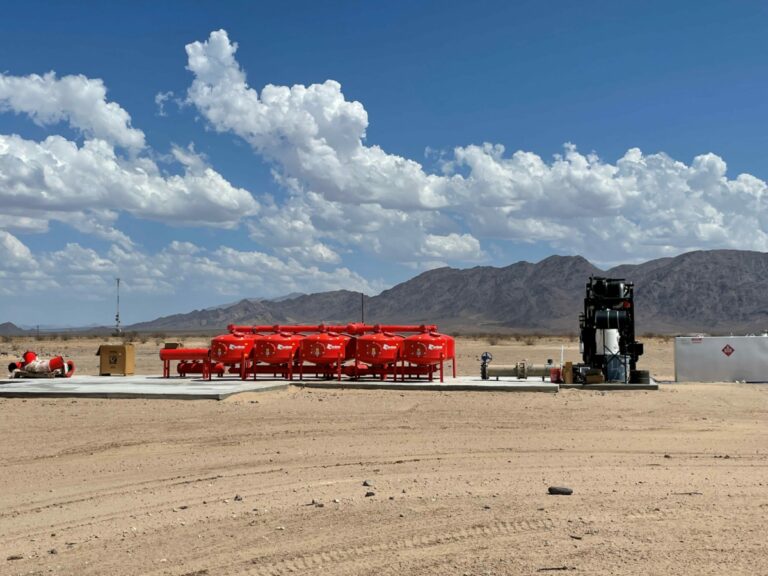
Downtown-based water infrastructure company Cadiz Inc. last month encountered yet another legal setback in its 25-year effort to convey water from its desert aquifer to a regional water aqueduct when a federal judge revoked a permit to use an old natural gas pipeline.
But far from putting its project on hold, Cadiz in subsequent days announced it would begin digging three new wells atop its aquifer and that it had completed an engineering study on converting the natural gas pipeline to carry water.
On Sept. 13, U.S. District Court Judge George Wu revoked a permit granted by the U.S. Bureau of Land Management in the waning days of the Trump administration to allow Cadiz to proceed with using the former natural gas pipeline it had purchased from El Paso Natural Gas – now a subsidiary of Houston, Texas-based energy infrastructure company Kinder Morgan Inc.
The 220-mile pipeline extends from the Cadiz Ranch property in the Mojave Desert west to Wheeler Ridge near Bakersfield, where it meets up with the California Aqueduct. It is one of two pipelines Cadiz plans to use to convey its water; the other one – yet to be constructed – would extend south to the Colorado River Aqueduct.
In March of last year, a trio of environmental groups filed suit, seeking to overturn the permit approval; in December, the U.S. Department of Justice, now part of the administration of President Biden, joined in the lawsuit.
In his ruling, Judge Wu said the BLM did not conduct a thorough environmental review of the impacts of the Cadiz project and ordered the permit remanded back to the agency for that more detailed review.
The ruling was welcomed by the environmental groups.
“We thank the Biden administration for protecting our scarce desert water and beloved national parks from this irresponsible water mining scheme,” Chris Clarke, associate director of the National Parks Conservation Association’s California Desert Program, said in a statement.
In its statement in response to the ruling, Cadiz downplayed the impact of the ruling.
“Yesterday’s ruling will have no impact on completion of the Cadiz water conservation and storage project, and we do not expect additional environmental review by the BLM to cause significant delay,” Susan Kennedy, executive chair of Cadiz’ board of directors, said in the statement. Kennedy, a cabinet secretary in the administration of former Gov. Gray Davis and chief of staff to former Gov. Arnold Schwarzenegger, joined the Cadiz board earlier this year.
A week after the ruling, Cadiz issued another statement saying work on the water transfer project was proceeding as planned with no delays due to the ruling.
In that statement, Cadiz said it had hired Phoenix-based Yellow Jacket Drilling Services to drill three additional wells above its aquifer, bringing the total number of wells to 12 and the daily water extraction capacity to 36,000 acre-feet a year, enough to supply water to more than 400,000 households a year. Drilling is to start this quarter and wrap up early next year.
Cadiz also said in the statement that an engineering study it had commissioned from Edmonton, Alberta engineering firm Stantec had been completed, laying the groundwork for the physical conversion of the pipeline to allow it to convey drinkable water.
“Our analysis found the northern pipeline can be readied for water service quickly, giving the Cadiz water project one of the shortest timelines to delivering new water to the region,” John Hanula, senior vice president of global major pursuits for Stantec, said in the statement.
Company spokeswoman Courtney Degener added that the pipeline conversion project could begin early next year and take as many as 18 months to complete.
